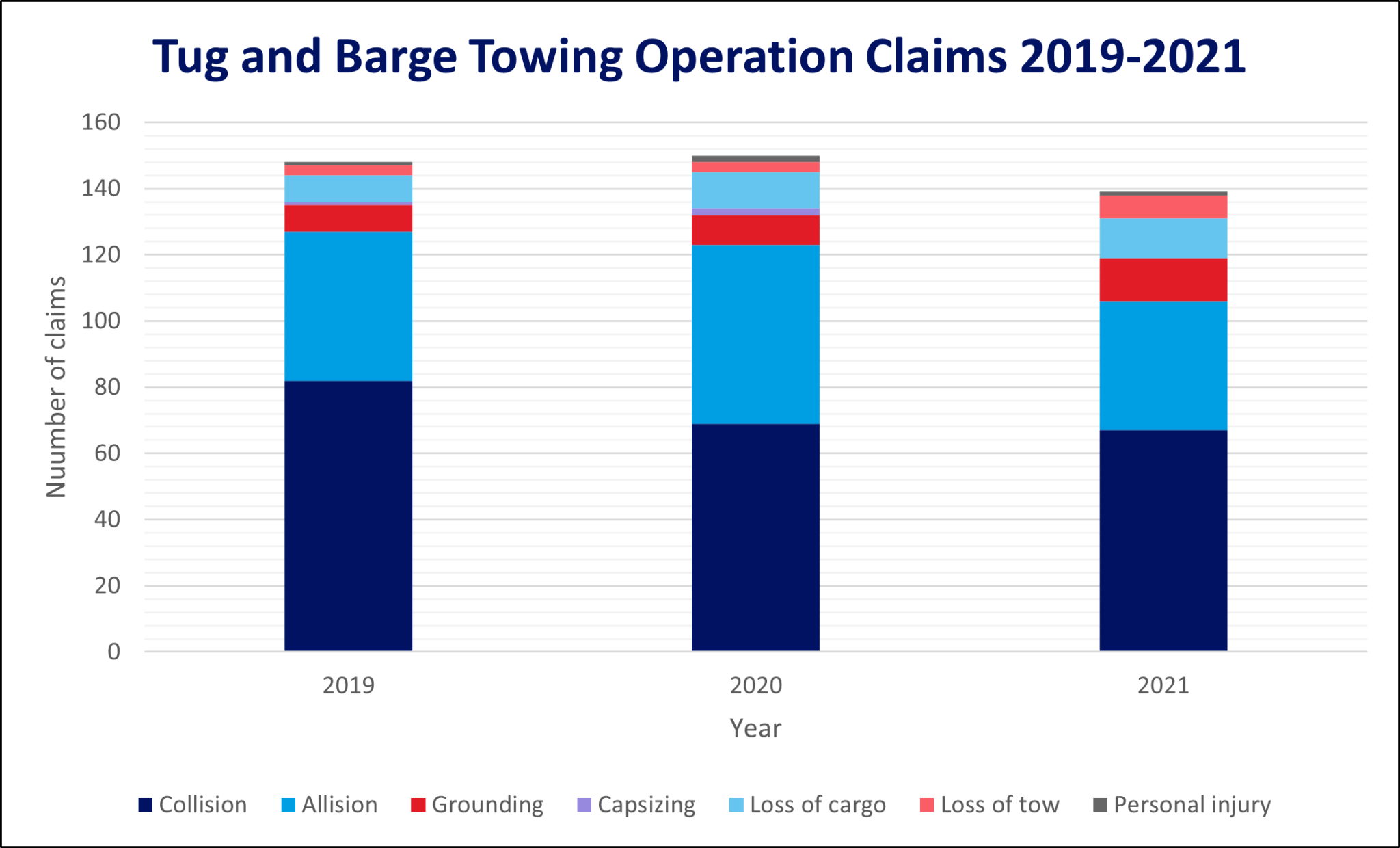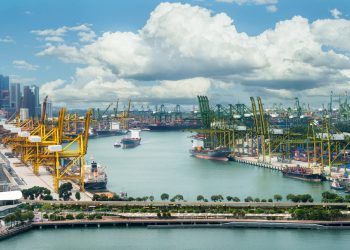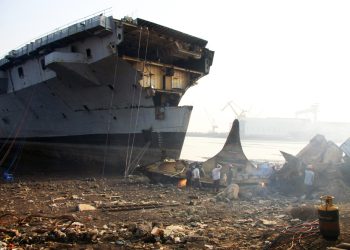While the principles of navigation, stability, and cargo securing on tug and barge units remain the same as for ocean-going cargo vessels, the towing operation of barges comes with its own sets of related hazards.
According to the Shipowners’ Club, non-propelled barges are widely used to carry commodities and equipment on inland waterways, in coastal waters and open seas.
The towing of these barges by purpose-built tugs is a standard operation, however this activity presents complex challenges
According to the Shipowners’ Club, there is consistency in the number and types of claims related to this type of operation.
It is worth noting that collision and allision claims collectively caused the most significant number of these claims in this reporting period, with 85% of those being attributed to navigational and handling errors.

To help operators minimize those risks, the Shipowners’ Club provided an assessment for tug and barge towing operations, which include the following
- Envisage the task in hand and identify the hazards associated with carrying out the task. These hazards are to be listed and addressed individually in the risk assessment form.
- Once the hazard has been identified, based on the combination of the likelihood and severity/consequence of the hazard, the risk evaluation score is to be assigned using the risk evaluation matrix on the last page. For example, a hazard which has a likelihood of ‘unlikely’ and a severity/consequence of “harmful”, the risk evaluation score would be (moderate risk).
- With the determination of the risk evaluation score, using the recommended response table, appropriate action is to be planned and implemented.
- Using the above example of a risk evaluation score of 4 (moderate risk), appropriate controls must be applied to the risk and these must be listed out accordingly in the form along with the person responsible for applying the control and the completion date.
- Once the controls have been applied, the risk must be reassessed as a whole taking into account the applied controls and once again using the risk evaluation matrix on the last page, a residual score must be obtained.
- If the residual risk on reassessment is ‘Trivial’ or ‘Tolerable’ (scores 1 and 2), then no additional controls are required and only effective monitoring of the task to ensure compliance with procedures is necessary.
- However, if the reassessment of the risk again is ‘Moderate’, ‘Substantial’ or ‘Intolerable’ and yields a score higher than 2, it implies that the applied controls are not sufficient to address the associated hazards and therefore do not bring the risk to a safe level. This would require additional controls to be applied and steps 4 and 5 to be followed once again.
- This process would continue until the residual risk is eventually brought down to an acceptable level (scores 1 or 2).
- Effective supervision of the task to be carried out is necessary to ensure that there are no unauthorized and unsafe diversions which could effectively change the entire risk assessment therefore making it inappropriate for the current task.






























































